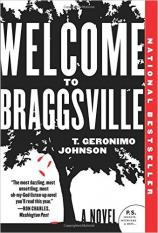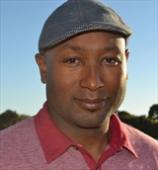Reading Group Guide
Discussion Questions
Welcome to Braggsville

1. The main settings are Berkeley, CA, and Braggsville, GA. What are the primary characteristics of these towns, and why does the author juxtapose them? Is there significance to the nickname "Berzerkley"? What about Braggsville’s town motto, "The city that love built"?
2. The main character is introduced as D'aron, but he drops the apostrophe when he reaches college. What do you think this signifies about his changing self-identity? What is the implication later in the book when both spellings are used in his internal monologue? Do you think these two parts of his identity are reconcilable?
3. What does the story of Ishi, the Native American who lived in a museum exhibit, symbolize for Candice? Can you think of a historical figure or event that has had a profound influence on your world view?
4. At Berkeley, the students are encouraged to utilize "performative intervention" to shock onlookers into engaging with uncomfortable topics they might otherwise ignore. Do you think this type of political performance is a worthwhile and eye-opening approach, or is it too avant-garde to ever be useful?
5. In the beginning of the book, D'aron views his parents as uneducated and unworldly, but later his perception of their world view seems to evolve. Do you think the author intended the reader to like or dislike them? Can they and the other Braggsvillians be categorized as simply "good" or "bad"?
6. Compare and contrast D'aron's personality with his cousin, Quint. Have you ever had a friend or relative with a wildly different world view? Were you able to make your relationship work in spite of your differences?
7. Louis' brand of humor frequently makes light of issues around race and culture, but he isn't characterized as a racist. What differentiates his jokes from Quint's? Does his stand-up routine help him get along with D'aron's family? Under what circumstances do you think it's "okay" to joke about race?
8. After the staged lynching, when Candice returns to the Davenports' home in torn clothes from the direction of the black neighborhood, D'aron assumes she was raped and picks up a gun to retaliate, even though she never states this herself. What do these actions suggest about D'aron's internalized prejudice? How do his prejudices affect his behavior toward Charlie when Charlie later makes a personal revelation?
9. In the aftermath of the “Incident at Braggsville,” the Davenports come under scrutiny, and it's suggested that D'aron may have masterminded the entire event. Does this warped interpretation of the facts parallel the way real news is reported through media channels today? Can you think of a news story that you felt misrepresented or omitted information to serve the agenda of the author or reporting agency?
10. The militia touts itself as a well-meaning group of concerned citizens, but their stronghold on the city is extreme, as evidenced by the abrupt shift in the way the Davenports are treated after D'aron visits the hunting lodge. Have you ever belonged to a group in which the majority's viewpoints were so strong you felt you could not disagree with them? Did you choose to leave the group, if you could?
11. Jo-Jo and D'aron are forced into a startling and severe punishment ritual by the militia. Is this a "performative intervention" of its own kind? Between Jo-Jo’s physical castigation and D’aron’s banishment from the town, which do you think is more severe and why?
12. In the "Sexicon," the author defines Braggsville as "U.S. of A," and vice versa. Do you think Braggsville is a microcosm of the United States? In which ways do you perceive it to be similar to or different from the country as a whole? Is Berkeley depicted as an ideal environment, or is it criticized for its own shortcomings?
Welcome to Braggsville
- Publication Date: September 8, 2015
- Genres: Fiction
- Paperback: 400 pages
- Publisher: William Morrow Paperbacks
- ISBN-10: 0062302132
- ISBN-13: 9780062302137








